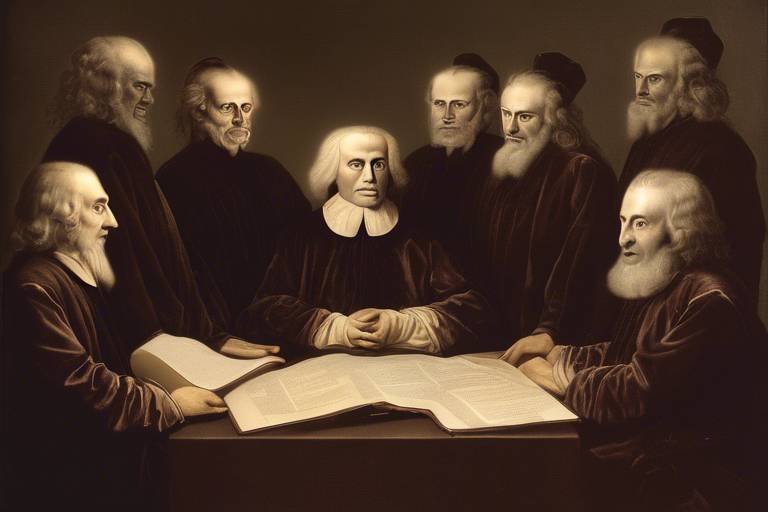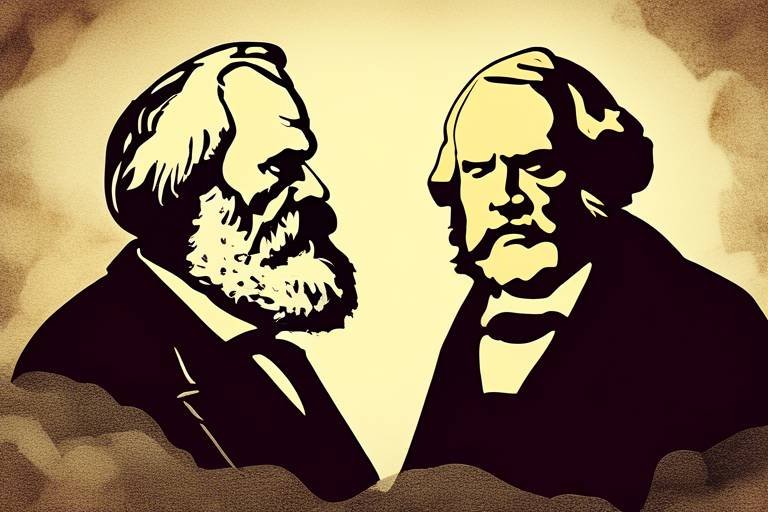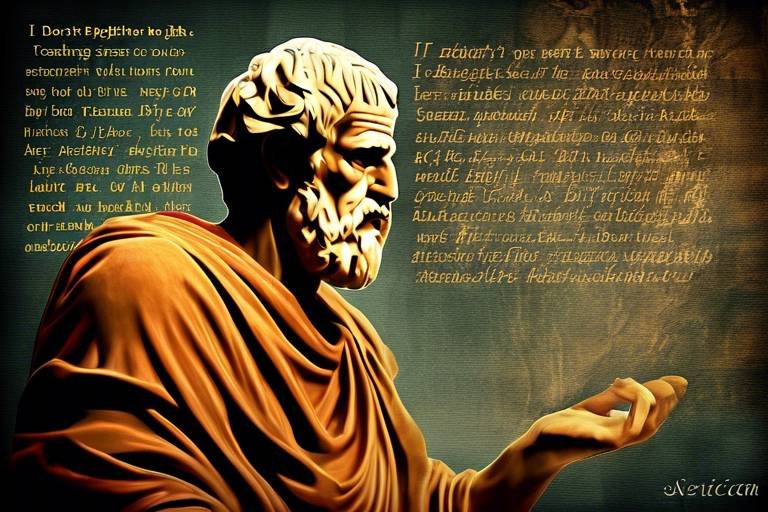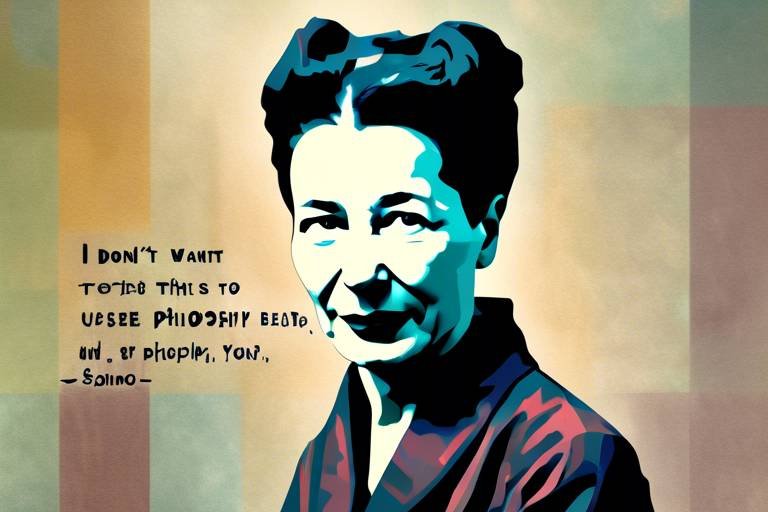A Comprehensive Study of the Kantian Philosophy of Ethics
This article explores the fundamental principles of Kantian ethics, including its key concepts, implications, and critiques, providing a thorough understanding of Immanuel Kant's moral philosophy and its relevance today. Kantian ethics is not just a theoretical framework; it's a profound approach to understanding morality that challenges us to think deeply about our actions and their implications. In a world filled with ethical dilemmas, Kant's insights remain remarkably pertinent, inviting us to consider what it truly means to act morally.
At the heart of Kantian ethics lies the concept of duty, which is intricately tied to the categorical imperative. This principle emphasizes that moral actions should be based on rationality rather than on the consequences of those actions. Imagine you are at a crossroads, faced with a decision that could impact not only your life but also the lives of others. Kant would urge you to consider whether the guiding principle behind your decision could be universally applied. This section delves into these foundational concepts, illustrating how they form the bedrock of Kant's ethical framework.
The categorical imperative is central to Kant's ethical theory. It serves as a moral compass, guiding individuals in their decision-making processes. Kant proposed several formulations of this imperative, each designed to establish universalizable principles for ethical behavior. By adhering to these principles, individuals can navigate the murky waters of moral quandaries with clarity and conviction. Let's break down its significance further.
One of the most prominent formulations of the categorical imperative is the Universal Law Formulation. According to this principle, one should act only according to that maxim which can be willed as a universal law. This means that before taking action, you should ask yourself: "Would it be acceptable for everyone to act in this way?" This formulation emphasizes consistency and universality in ethical reasoning, compelling us to think beyond our personal desires and consider the broader implications of our actions.
Understanding the practical implications of the universal law formulation helps individuals evaluate their actions and moral duties. It fosters a deeper commitment to ethical principles in everyday life. For instance, consider the act of lying. If everyone lied whenever it was convenient, trust would erode, and society would crumble. Thus, the universal law formulation encourages us to reflect on the ethicality of our actions in a broader context, promoting a more harmonious society.
Despite its strengths, the universal law formulation faces critiques regarding its applicability in complex moral situations. Critics argue that rigid adherence to this principle may overlook the nuances of specific circumstances, challenging its effectiveness in addressing real-world ethical dilemmas. For example, what if lying could save a life? This dilemma raises questions about the practicality of Kant's approach in situations where moral absolutes clash with the complexities of human experience.
Kant's second formulation of the categorical imperative asserts that individuals should treat humanity, whether in oneself or others, as an end in itself. This principle emphasizes the inherent value of each person, insisting that we respect others not merely as means to our ends but as individuals with their own rights and dignities. This section examines its significance in ethical considerations, highlighting the importance of recognizing the humanity in every interaction.
Kantian ethics places great emphasis on moral autonomy, asserting that true ethical behavior arises from the individual's ability to legislate moral laws for themselves. This perspective champions the idea that we are not merely subjects of external moral dictates but active participants in our moral journeys. This section discusses the interplay between autonomy and freedom, illustrating how Kantian ethics empowers individuals to take responsibility for their actions.
Kant argues that reason is the foundation of morality, guiding individuals to discern right from wrong. In a world where emotions often cloud judgment, Kant's emphasis on rationality serves as a beacon of clarity. This section explores how rationality underpins ethical decision-making in the Kantian framework, encouraging us to engage our intellect when confronted with moral choices.
In Kantian philosophy, moral responsibility is tied to the capacity for rational thought. This connection underscores the importance of accountability in ethical behavior. When we act with awareness and intention, we are held responsible for our choices. This section highlights the implications for moral judgment, reminding us that with freedom comes the weight of responsibility.
While Kantian ethics has significantly influenced moral philosophy, it has also faced various critiques. This section addresses common objections and discusses alternative ethical theories that challenge Kant's principles. Critics argue that Kant's approach can be overly rigid and may not adequately account for the complexities of human relationships and emotions.
Utilitarianism, with its focus on outcomes and the greatest good for the greatest number, stands in contrast to Kantian ethics. This section examines the key differences and debates between these two ethical frameworks, highlighting how the utilitarian approach prioritizes results over intentions, which can lead to very different conclusions about what constitutes ethical behavior.
Feminist philosophers have critiqued Kantian ethics for its perceived rigidity and lack of consideration for relational aspects of morality. This section discusses these critiques and their implications for understanding ethics today, emphasizing the need for a more inclusive approach that considers the interconnectedness of human experiences.
- What is the main idea behind Kantian ethics? Kantian ethics emphasizes that morality is grounded in rationality and the duty to act according to universalizable principles.
- How does the categorical imperative guide moral decisions? The categorical imperative provides a framework for evaluating actions by asking if they can be universally applied.
- What are some critiques of Kantian ethics? Critics argue that Kantian ethics can be rigid and may not adequately address complex moral situations.

The Foundations of Kantian Ethics
Kantian ethics is a profound moral philosophy that revolves around the concept of duty and the categorical imperative. At its core, Kantian ethics posits that moral actions should be guided by rationality rather than the consequences of those actions. This approach is revolutionary because it shifts the focus from results to intentions, urging individuals to consider their motives and the universality of their actions. Kant believed that ethical behavior is not merely about what one does, but also about why one does it. In this context, the importance of duty becomes paramount.
The notion of duty in Kantian ethics asserts that individuals have a moral obligation to act in accordance with certain principles that they can will to become universal laws. This means that before taking any action, one should ask themselves, "Would it be acceptable for everyone to act in this way?" If the answer is no, then the action is deemed unethical. This principle of universality is a cornerstone of Kant's ethical framework, as it promotes consistency and fairness in moral reasoning.
Moreover, Kant's emphasis on rationality is critical to understanding his ethical theory. He believed that humans, as rational beings, possess the innate ability to discern right from wrong through reason. This capability allows individuals to legislate moral laws for themselves, fostering a sense of moral autonomy. In Kant's view, true ethical behavior arises not from external influences or societal norms but from an internal compass guided by reason. This perspective invites individuals to engage in self-reflection and critical thinking, challenging them to evaluate their own beliefs and actions.
However, Kantian ethics is not without its complexities. The rigid adherence to duty and the categorical imperative can sometimes lead to challenging moral dilemmas. For instance, what happens when a duty conflicts with another duty? This tension raises questions about the applicability of Kant's principles in real-world situations. Nevertheless, the foundational ideas of duty, rationality, and moral autonomy remain influential, encouraging individuals to strive for ethical behavior that is consistent and principled.
To summarize, the foundations of Kantian ethics are built on the interplay between duty, rationality, and moral autonomy. These concepts not only define Kant's moral philosophy but also provide a framework for individuals to navigate ethical challenges in their lives. As we delve deeper into Kant's categorical imperative, we will uncover the various formulations that further illuminate his ethical theory and its relevance in today's world.
- What is the categorical imperative? The categorical imperative is a central concept in Kantian ethics that acts as a guiding principle for moral decision-making, emphasizing actions that can be universally applied.
- How does Kantian ethics differ from consequentialism? While Kantian ethics focuses on the intention behind actions, consequentialism evaluates the morality of actions based on their outcomes.
- Why is moral autonomy important in Kantian ethics? Moral autonomy allows individuals to legislate their own moral laws through reason, fostering a sense of personal responsibility and ethical integrity.
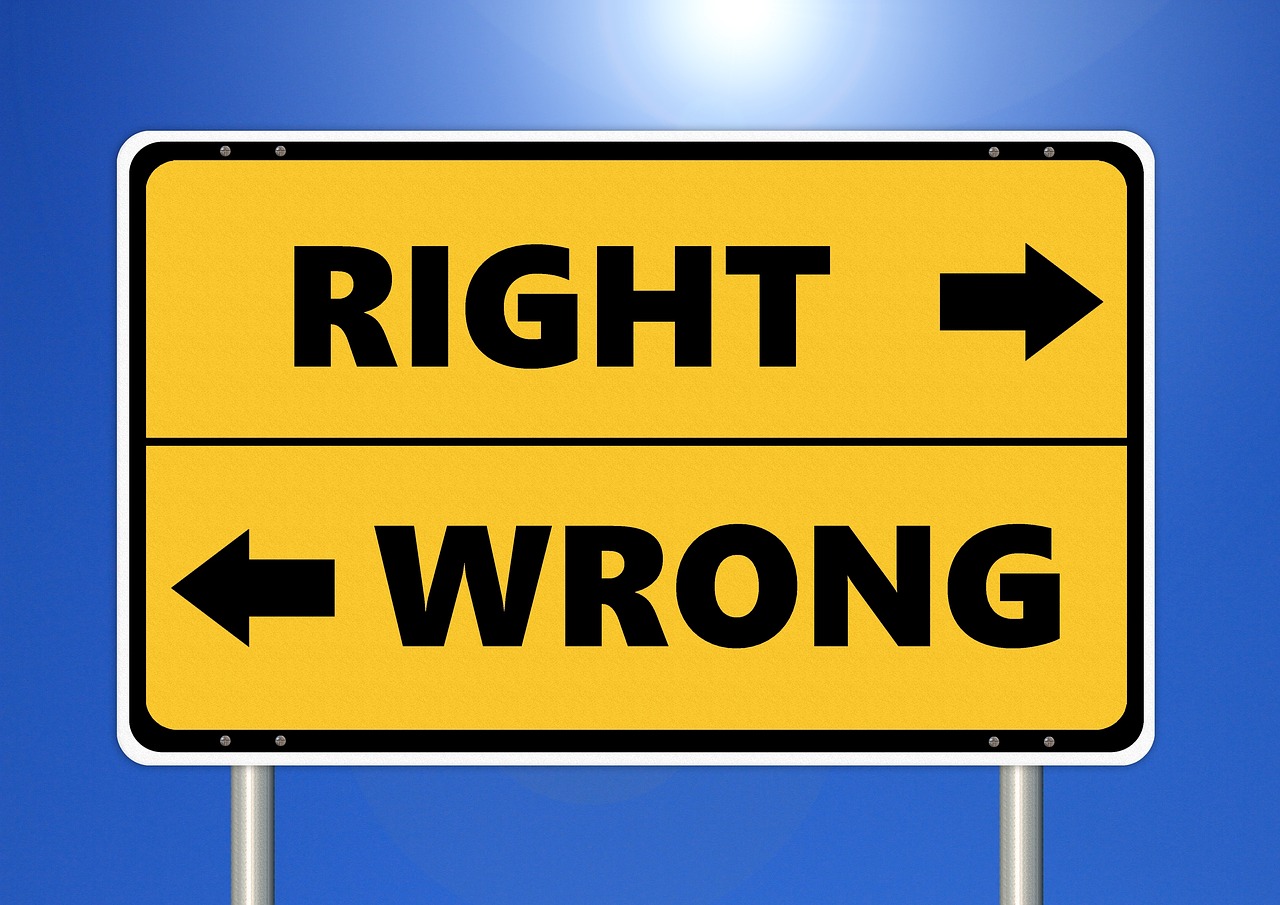
The Categorical Imperative Explained
The categorical imperative is the cornerstone of Immanuel Kant's moral philosophy, serving as a guiding principle that dictates how we ought to act. Unlike hypothetical imperatives, which are conditional and based on personal desires, the categorical imperative is unconditional and universally applicable. It commands us to act in ways that could be willed as a universal law, meaning that our actions should be capable of being adopted by everyone without contradiction. This idea can be quite profound, as it invites us to consider the broader implications of our actions on society as a whole.
One of the most significant aspects of the categorical imperative is its emphasis on rationality. Kant believed that moral actions should not be dictated by emotions or consequences but rather by rational thought. In essence, he argued that true morality arises from our capacity to reason. This perspective shifts the focus from what we feel to what we think, challenging us to engage in a deeper level of ethical reflection. For instance, when faced with a moral dilemma, rather than asking ourselves what we want to happen, we should ask whether our action could be justified as a universal law. This transformative approach can lead to more consistent and principled decision-making.
Kant's categorical imperative can be understood through its various formulations, each shedding light on different facets of moral reasoning. The first formulation is often referred to as the Universal Law Formulation, which posits that one should act only according to that maxim which can be willed as a universal law. This means that before we act, we should consider whether we would want our action to become a universal norm. For example, if one considers lying to achieve a personal goal, they must reflect on whether it would be acceptable for everyone to lie in similar situations. If the answer is no, then the action is deemed immoral.
Another significant formulation is the End in Itself Formulation, which emphasizes the intrinsic value of human beings. According to this principle, we must treat humanity, whether in ourselves or others, as an end in itself, never merely as a means to an end. This is particularly important in today's society where individuals may often be viewed as tools for achieving personal or corporate objectives. By recognizing the inherent worth of every individual, we foster an environment of respect and dignity that is essential for ethical coexistence.
Understanding the categorical imperative is not just an abstract exercise; it has practical implications for our daily lives. It encourages individuals to develop a strong moral compass, guiding them in their interactions with others. By applying the principles of the categorical imperative, one can cultivate a sense of moral duty that transcends personal interest, leading to a more just and equitable society. However, it is essential to recognize that applying these principles can be challenging, especially in complex situations where the right course of action may not be immediately clear.
In conclusion, the categorical imperative serves as a powerful tool for ethical reasoning. It compels us to think critically about our actions and their potential impact on others, urging us to act in ways that uphold the dignity and worth of all individuals. By embracing this philosophical framework, we can aspire to a higher standard of morality that prioritizes rationality and respect for humanity.
- What is the categorical imperative? The categorical imperative is a fundamental principle in Kantian ethics that dictates that one should act only according to maxims that can be universalized.
- How does the categorical imperative differ from hypothetical imperatives? Unlike hypothetical imperatives, which depend on personal desires and conditions, the categorical imperative is unconditional and universally applicable.
- Why is rationality important in Kantian ethics? Rationality is crucial because it ensures that moral actions are based on reason rather than emotions or outcomes, leading to more consistent ethical behavior.
- Can the categorical imperative be applied in real-life situations? Yes, the categorical imperative can guide individuals in making ethical decisions by encouraging them to consider the broader implications of their actions.

The Universal Law Formulation is a cornerstone of Kantian ethics, encapsulating the essence of moral reasoning in a single, powerful principle. At its core, this formulation posits that one should act only according to that maxim which can be willed as a universal law. In simpler terms, it suggests that before we take action, we should consider whether we would want everyone else to act in the same way. This principle is not just a guideline; it serves as a litmus test for ethical behavior, ensuring that our actions can be universally applied without contradiction.
Imagine a world where everyone followed this principle. Would it be chaotic, or would it foster a sense of community and responsibility? Kant believed that by adhering to the Universal Law Formulation, individuals would cultivate a society where ethical behavior is the norm, not the exception. This idea emphasizes consistency and universality in ethical reasoning, challenging us to think beyond our personal desires and consider the broader implications of our actions.
To better understand this concept, let’s break down how the Universal Law Formulation functions in practice:
- Step 1: Identify the Maxim - What is the principle behind your action?
- Step 2: Universalize the Maxim - Can this principle be applied universally without leading to a contradiction?
- Step 3: Evaluate the Outcome - Would the world be a better place if everyone acted according to this maxim?
This structured approach not only clarifies our moral reasoning but also reinforces the idea that ethical decisions should be grounded in rational thought. For instance, consider the maxim, "I will lie to get what I want." If everyone adopted this maxim, trust would erode, and communication would break down. Thus, the principle fails the universalization test, indicating that lying cannot be justified.
However, the Universal Law Formulation is not without its challenges. Critics argue that it can be too rigid, failing to account for the complexities of human relationships and emotional dynamics. In real-life scenarios, moral dilemmas often involve competing duties and nuanced situations that a strict application of this formulation may not adequately address. For example, if a friend asks you to lie for them, the maxim "I will lie to protect my friend" could seem justifiable in a personal context, yet it still conflicts with the broader ethical implications of honesty.
In conclusion, the Universal Law Formulation is a powerful tool for ethical reasoning, urging us to consider the universality of our actions. While it provides a clear framework for evaluating moral decisions, it also invites ongoing discussion about its applicability in the face of complex human experiences. As we navigate the intricate landscape of ethics, this formulation serves as a reminder of our duty to act in ways that can be endorsed by all, fostering a more just and equitable society.

The practical implications of the Universal Law formulation of Kant's categorical imperative are profound and far-reaching. This principle encourages individuals to evaluate their actions through a lens of universality and consistency. Imagine a world where everyone adhered to the same ethical standards; it would foster a sense of trust and mutual respect among individuals. Kant's idea prompts us to ask ourselves, "Would I want everyone to act in the same way I am considering?" This question serves as a moral compass, guiding our decision-making processes.
By applying the Universal Law formulation, individuals can cultivate a deeper commitment to ethical principles in their daily lives. For instance, consider the act of lying. If one were to lie, they must confront the uncomfortable reality that if everyone lied, trust would erode, and society would collapse into chaos. This realization reinforces the importance of honesty as a universal value. In essence, the Universal Law formulation not only shapes personal behavior but also contributes to the moral fabric of society.
Furthermore, the practical implications extend beyond individual actions to influence broader societal norms. When people consistently apply the Universal Law in their interactions, it can lead to the establishment of laws and policies that reflect these shared ethical standards. Think about how anti-discrimination laws emerged from the collective understanding that treating individuals with respect and dignity is a universal right. Thus, Kant's ethics can serve as a foundation for creating a just and fair society.
However, it's essential to acknowledge that applying the Universal Law can sometimes be challenging. Real-life situations often present complex moral dilemmas where the right course of action is not always clear-cut. For example, consider a scenario where telling the truth might cause significant harm to someone. In such cases, individuals must grapple with the tension between adhering to universal principles and considering the consequences of their actions. This complexity illustrates the need for ongoing reflection and dialogue about ethical standards.
In summary, the Universal Law formulation of Kant's categorical imperative provides a powerful framework for evaluating moral actions. By promoting consistency and universality, it encourages individuals to act in ways that can be accepted as a common standard for everyone. As we navigate the complexities of modern life, embracing this ethical approach can lead to a more harmonious and just society.
- What is the Universal Law formulation? The Universal Law formulation is a key component of Kant's categorical imperative, stating that one should act only according to that maxim which can be willed as a universal law.
- How does the Universal Law impact decision-making? It encourages individuals to consider whether their actions could be accepted as a universal standard, promoting ethical consistency.
- What are the challenges of applying the Universal Law? Real-life situations can present complex dilemmas where the right action is not always clear, requiring careful reflection.
- Can the Universal Law lead to societal change? Yes, by fostering shared ethical standards, it can influence laws and policies that reflect these values.

The universal law formulation of the categorical imperative, while foundational to Kantian ethics, has not escaped scrutiny. Critics argue that its rigid structure may oversimplify the complexities of moral situations. For instance, consider a scenario where telling a lie could save a life. According to the universal law, one must act only according to that maxim which can be willed as a universal law. If everyone lied in such situations, trust would erode, potentially leading to chaos. This raises a pressing question: can we truly apply a one-size-fits-all approach to morality?
Moreover, critics contend that the formulation lacks consideration for the context in which moral decisions are made. In real-world situations, ethical dilemmas often involve conflicting duties and emotional dimensions that the universal law does not adequately address. For example, a parent might face a moral conflict between honesty and protecting their child's feelings. Here, the rigid application of the universal law may fail to capture the nuances of parental responsibility.
Another significant critique comes from the perspective of moral particularism, which argues that moral judgments should be based on the particulars of each situation rather than universal principles. This approach suggests that the universal law formulation cannot account for the rich tapestry of human experience, where motivations and consequences vary widely. In essence, it poses the question: is it possible to legislate morality without considering the human elements involved?
Furthermore, some philosophers have pointed out that the universal law formulation can lead to moral dilemmas that seem unjust. For instance, if a murderer comes to your door asking for the whereabouts of their intended victim, the universal law would require you to tell the truth, as lying would not be a maxim that could be universalized. This perspective highlights a fundamental tension in Kantian ethics: the struggle between adhering to moral principles and the potential consequences of those principles in real-world scenarios.
In summary, while the universal law formulation of Kantian ethics provides a clear framework for ethical reasoning, its critiques illuminate the challenges of applying such a rigid structure to the fluid and often unpredictable nature of human morality. The debate surrounding its applicability continues to resonate in contemporary discussions of ethics, urging us to reflect on the balance between universal principles and the complexities of individual circumstances.
- What is the universal law formulation? The universal law formulation is a key component of Kantian ethics that states one should act only according to that maxim which can be willed as a universal law.
- Why do critics argue against the universal law formulation? Critics argue it oversimplifies complex moral situations, lacks contextual consideration, and can lead to unjust outcomes.
- How does the universal law relate to moral responsibility? It emphasizes the importance of consistency in moral reasoning, suggesting that individuals must act according to principles that could be universally applied.
- Are there alternatives to the universal law formulation? Yes, moral particularism and utilitarianism are two prominent alternatives that focus on context and outcomes rather than strict adherence to universal principles.

The End in Itself formulation is one of the cornerstones of Kant's ethical philosophy. It asserts that every individual must be treated as an end in themselves, not merely as a means to an end. This principle urges us to recognize the inherent dignity and worth of every person, emphasizing that moral actions should respect and uphold this dignity. Imagine a world where everyone is viewed not just as a tool for achieving someone else's goals, but as a valuable individual with their own rights and aspirations. This perspective transforms our interactions and encourages a more compassionate society.
In practical terms, this means that when making decisions, we must consider how our actions affect others. For instance, if you’re in a business setting and contemplating a decision that may benefit your company but could harm employees, the End in Itself formulation would guide you to reconsider that choice. It pushes us to ask questions like: “Am I valuing my employees as individuals?” or “Are my actions respecting their autonomy and dignity?” This moral compass is crucial in fostering respectful and ethical relationships.
Moreover, this formulation aligns with the concept of moral equality. Every individual, regardless of their social status, gender, or background, deserves equal consideration in moral deliberations. This idea is particularly significant in today’s context, where issues of inequality and injustice are prevalent. By adhering to the End in Itself formulation, we commit ourselves to challenge systems that dehumanize individuals and advocate for a more equitable society.
However, applying this principle can be challenging. For instance, in complex situations where the interests of multiple parties conflict, how do we ensure that we are treating everyone as an end in themselves? Here, the formulation invites us to engage in deeper ethical reasoning, weighing the implications of our actions and striving for solutions that honor the dignity of all involved. It’s a delicate balancing act, often requiring us to navigate difficult moral waters.
To summarize, the End in Itself formulation is not just a theoretical concept; it has profound implications for how we live our lives and interact with others. It encourages us to cultivate a mindset of respect and empathy, reminding us that our actions have the power to uplift or diminish the inherent worth of those around us. As we navigate our daily lives, let’s carry this principle with us, ensuring that we treat every person we encounter as an end in themselves, fostering a more just and humane world.

Kantian ethics places a profound emphasis on moral autonomy, which is the idea that individuals must have the freedom to legislate moral laws for themselves. This concept is not just about having the ability to make choices; it's about having the responsibility to make those choices based on rational thought and ethical principles. So, what does this mean for us in our daily lives? Well, it means that we are not merely puppets dancing to the strings of societal norms or external pressures. Instead, we are the authors of our own moral narratives, empowered to act according to what we deem right and just.
Within this framework, freedom is not simply the absence of constraints; rather, it's the presence of a rational will that aligns with universal moral laws. Kant believed that true freedom is found when we act according to principles that we can will to be universal laws. Imagine a world where everyone acted based on the same ethical principles—what a cohesive society that would create! This is the essence of Kant's moral philosophy, where our freedom is intrinsically linked to our capacity for reason.
However, the relationship between autonomy and freedom is not without its complexities. For instance, consider the following points:
- Rationality as a Guide: Kant argues that our ability to reason is what enables us to discern right from wrong, making rational thought essential for moral action.
- Accountability: With freedom comes the responsibility to be accountable for our actions. Kant emphasizes that we must be prepared to justify our choices based on rational principles.
- Individual vs. Collective Morality: While we are free to make our own moral decisions, these decisions must also respect the autonomy of others, creating a balance between individual rights and collective ethics.
This interplay between autonomy and freedom is crucial for understanding Kant's vision of a moral society. When individuals act autonomously, they not only respect their own moral agency but also acknowledge the moral agency of others. This mutual respect is foundational for any ethical community. In essence, Kantian ethics teaches us that our freedom is not just a personal affair; it's a communal obligation.
As we navigate our lives, the challenge lies in ensuring that our actions reflect both our autonomy and our commitment to ethical principles. Are we truly acting in a way that respects both our freedom and the dignity of others? This question invites us to reflect deeply on our moral choices and the impact they have on the world around us. In doing so, we not only honor Kant's legacy but also contribute to a more ethical society.
- What is moral autonomy in Kantian ethics?
Moral autonomy refers to the ability of individuals to legislate moral laws for themselves based on rational thought, rather than being influenced solely by external factors. - How does freedom relate to moral responsibility?
In Kantian ethics, true freedom involves acting according to rational principles, which also entails accountability for one's actions. - Can moral autonomy lead to conflicts in society?
Yes, while moral autonomy is essential, it can lead to conflicts when individual moral decisions do not align with collective ethical standards. - What role does reason play in Kantian ethics?
Reason is the foundation of Kantian ethics, guiding individuals to discern right from wrong and make moral choices that can be universally applied.

At the heart of Kantian ethics lies the indispensable role of reason. Kant posited that human beings are not merely creatures of instinct; rather, we possess the unique ability to rationalize our actions and decisions. This rational capacity is what sets us apart and allows us to discern right from wrong. Imagine being in a vast ocean of choices, where each wave represents a different action. It is our reason that serves as a lighthouse, guiding us safely to the shore of moral clarity.
For Kant, moral actions are not dictated by emotions or societal pressures but rather stem from a rational assessment of duty. This is where the concept of the categorical imperative comes into play. It acts as a compass for ethical decision-making, urging individuals to act according to maxims that could be universally applied. In simpler terms, if you wouldn't want everyone to act a certain way, then you shouldn't act that way either. This principle encourages a level of consistency in our moral judgments, ensuring that our actions are aligned with a broader ethical framework.
The implications of this rational approach are profound. When we engage in ethical reasoning, we are not just considering our personal feelings or the immediate consequences of our actions. Instead, we are evaluating the broader impact of our choices on others and society as a whole. This leads to a more profound understanding of moral responsibility. In Kant's view, if we possess the ability to reason, we also bear the responsibility for our actions. It's a bit like being the captain of a ship; if you steer it recklessly, you are accountable for the course you set, not just for yourself but for everyone aboard.
However, this emphasis on reason does not imply that emotions and relationships are irrelevant in ethical considerations. Instead, Kant believed that while emotions might guide us, they should never dictate our moral choices. For instance, you may feel a strong urge to help a friend in need, but if that action contradicts a universal moral principle, Kant would argue that it is not the right action to take. This perspective raises an interesting question: can we truly separate our emotions from our ethical decisions? It's a debate that continues to challenge philosophers and ethicists alike.
In conclusion, the role of reason in ethics according to Kant is foundational. It not only shapes our understanding of moral duties but also empowers us to act in ways that are consistent and just. By harnessing our rational capabilities, we can navigate the complexities of ethical dilemmas with clarity and integrity, ensuring that our actions reflect our commitment to universal moral principles.
- What is Kantian ethics? Kantian ethics is a deontological ethical theory developed by Immanuel Kant, which emphasizes duty and the categorical imperative as the basis for moral action.
- How does reason play a role in Kantian ethics? Reason is fundamental in Kantian ethics as it allows individuals to discern right from wrong and to legislate moral laws for themselves.
- What is the categorical imperative? The categorical imperative is a central concept in Kantian ethics that provides a method for evaluating moral actions based on universalizable principles.
- Can emotions influence ethical decisions in Kantian ethics? While emotions may guide us, Kantian ethics posits that they should not dictate our moral choices; reason must prevail in ethical decision-making.

Kantian philosophy places a significant emphasis on moral responsibility, which is intricately tied to the capacity for rational thought. According to Kant, being able to reason is what allows individuals to understand their duties and obligations. This means that moral actions are not merely about following rules but involve a deeper understanding of why those rules exist. In this light, moral responsibility is not just a matter of adhering to societal norms; it's about recognizing the implications of our choices and being accountable for them.
To grasp the essence of moral responsibility in Kantian ethics, we must consider how it relates to freedom. Kant argues that true freedom is not the absence of constraints but the ability to act according to rational principles. When individuals exercise their reason, they are not only free but also responsible for their actions. This duality suggests that moral accountability arises from our ability to legislate our moral laws, making us active participants in our ethical framework.
Moreover, Kantian ethics posits that accountability is essential for moral judgment. When we evaluate our actions, we must ask ourselves whether we could will that our maxims could become universal laws. This reflective process is crucial in determining whether our actions align with ethical principles. For instance, if someone were to lie to achieve a personal gain, they must consider the broader implications of such an action. Would it be acceptable for everyone to lie? If the answer is no, then the action fails to meet the Kantian standard for moral behavior.
This leads us to the idea that moral responsibility encompasses not only the individual but also the community. Each person's actions contribute to the moral fabric of society. Therefore, when individuals act irresponsibly, it can have a ripple effect, undermining the collective ethical standards. Kant's framework encourages us to think about how our decisions impact others, reinforcing the notion that we are all part of a larger moral ecosystem.
In summary, moral responsibility and accountability in Kantian ethics are deeply intertwined with the concepts of reason and freedom. They compel us to recognize our role in the moral landscape and to act in ways that uphold ethical principles. By doing so, we not only fulfill our duties to ourselves but also to our fellow human beings, fostering a society grounded in mutual respect and understanding.
- What is the main idea of Kantian ethics? Kantian ethics emphasizes duty and the importance of moral laws determined by reason rather than consequences.
- How does Kant define moral responsibility? Kant defines moral responsibility as the obligation to act according to rational principles that one can will as universal laws.
- Why is accountability important in Kantian ethics? Accountability is crucial because it ensures that individuals reflect on their actions and their impact on society, promoting ethical behavior.
- What is the relationship between freedom and moral responsibility? In Kantian philosophy, true freedom is the ability to act according to rational moral laws, which in turn makes individuals accountable for their actions.

Kantian ethics, while profoundly influential, is not without its share of critiques. Many philosophers have raised concerns regarding its applicability and relevance in complex moral situations. One of the primary criticisms is that Kant's strict adherence to duty and the categorical imperative can sometimes lead to morally questionable outcomes. For instance, imagine a scenario where telling the truth could lead to harm. Kantian ethics would insist on honesty, regardless of the consequences, which can seem counterintuitive to our moral instincts. This brings us to the heart of the debate: can a rigid framework truly encompass the nuances of human experience?
Another significant critique comes from the perspective of utilitarianism. This ethical framework prioritizes the outcomes of actions, focusing on the greatest good for the greatest number. In contrast to Kant's deontological approach, utilitarianism evaluates moral actions based on their consequences rather than adherence to duties. Critics argue that this difference can lead to more pragmatic and flexible ethical decision-making, especially in situations where the stakes are high. For example, if saving five lives requires sacrificing one, a utilitarian might argue that the action is justified, while a Kantian would struggle with the moral implications of treating one person as a means to an end.
Moreover, feminist critiques highlight Kantian ethics' perceived rigidity and lack of consideration for relational aspects of morality. Feminist philosophers argue that Kant's framework is overly focused on individual autonomy, often neglecting the interconnectedness of human relationships. They suggest that ethical considerations should encompass compassion, empathy, and the complexities of social interactions. In a world where our lives are deeply intertwined, can we afford to ignore the relational dynamics that shape our moral landscape?
To further illustrate these critiques, consider the following table that summarizes key differences between Kantian ethics and utilitarian perspectives:
| Aspect | Kantian Ethics | Utilitarianism |
|---|---|---|
| Focus | Duty and moral laws | Consequences and outcomes |
| Moral Basis | Universalizable maxims | Greatest good for the greatest number |
| Application | Rigid, rule-based | Flexible, context-dependent |
| Examples | Always tell the truth | Lie to save lives |
These critiques do not necessarily invalidate Kant's contributions to moral philosophy, but they do invite a more nuanced understanding of ethics. They challenge us to reflect on the complexities of moral decision-making and the importance of context, relationships, and consequences. In the end, while Kantian ethics provides a robust framework for understanding moral duties, it is essential to consider alternative perspectives that enrich our ethical discourse.
- What is the main critique of Kantian ethics? The primary critiques focus on its rigidity and the potential for morally questionable outcomes when adhering strictly to duty without considering consequences.
- How does utilitarianism differ from Kantian ethics? Utilitarianism emphasizes the outcomes of actions and the greatest good for the greatest number, while Kantian ethics is centered around duty and universal moral laws.
- What do feminist critiques of Kantian ethics highlight? Feminist critiques argue that Kant's framework overlooks relational aspects of morality, emphasizing the need for compassion and empathy in ethical considerations.

When we dive into the world of ethics, we often stumble upon two heavyweight contenders: Kantian ethics and utilitarianism. While Kant champions the idea of duty and moral laws that apply universally, utilitarianism flips the script by focusing on the outcomes of our actions. Imagine you’re at a crossroads, and every choice you make has a ripple effect on the world around you. Utilitarianism asks you to weigh those effects, aiming for the greatest happiness for the greatest number. It’s like being a conductor of an orchestra, where each note represents a person’s happiness, and your job is to create the most harmonious symphony possible.
Utilitarianism, primarily associated with philosophers such as Jeremy Bentham and John Stuart Mill, operates on a simple yet powerful principle: actions are deemed right if they promote overall happiness and wrong if they produce the opposite. This consequentialist approach can be appealing because it provides a clear method for decision-making. However, it also raises some intriguing questions. For instance, how do we measure happiness? Is it even possible to quantify joy and suffering in a way that allows us to make fair comparisons? These questions highlight the complexities and challenges inherent in utilitarian thought.
One of the most significant contrasts between Kantian ethics and utilitarianism lies in their treatment of individuals. Kantian ethics insists that every person has intrinsic worth and should never be treated merely as a means to an end. In contrast, utilitarianism might justify sacrificing one individual for the greater good if it leads to a net increase in happiness. This raises ethical dilemmas, especially in real-world scenarios, such as healthcare resource allocation or criminal justice, where the needs of the many might overshadow the rights of the few. For instance, if a hospital has limited resources, should it prioritize treatment for a larger group of patients over a single individual, even if that individual has a higher chance of recovery?
To illustrate this conflict, consider the following table that compares key aspects of Kantian ethics and utilitarianism:
| Aspect | Kantian Ethics | Utilitarianism |
|---|---|---|
| Focus | Moral duties and rules | Consequences of actions |
| Key Principle | Categorical imperative | Greatest happiness principle |
| Treatment of Individuals | Intrinsic worth | Utilitarian calculus |
| Decision-Making | Based on moral laws | Based on outcomes |
Despite its practical appeal, utilitarianism is not without its critics. Some argue that it can lead to morally questionable decisions, such as justifying harmful actions if they result in a net gain of happiness. This notion of the "ends justifying the means" can create a slippery slope where ethical boundaries become blurred. Additionally, critics point out that the focus on the collective well-being can sometimes overshadow the needs and rights of individuals, leading to a potential disregard for personal autonomy.
In conclusion, the debate between Kantian ethics and utilitarianism is not just an academic exercise; it reflects real-life dilemmas we face every day. As we navigate through our choices, understanding these ethical frameworks can help us make more informed decisions. Whether you lean towards the rigid principles of Kant or the flexible outcomes of utilitarianism, it’s essential to engage with both perspectives to develop a well-rounded understanding of morality in our complex world. After all, ethics isn’t just about right and wrong; it’s about the delicate balance between individual rights and the greater good.
- What is the main difference between Kantian ethics and utilitarianism? Kantian ethics focuses on moral duties and the intrinsic worth of individuals, while utilitarianism emphasizes the consequences of actions and aims for the greatest happiness for the greatest number.
- Can utilitarianism justify unethical actions? Yes, critics argue that utilitarianism can lead to morally questionable decisions if harmful actions are justified by their positive outcomes.
- How do Kantian ethics and utilitarianism approach moral dilemmas? Kantian ethics relies on universal moral laws, while utilitarianism assesses the consequences of actions to determine the best course of action.
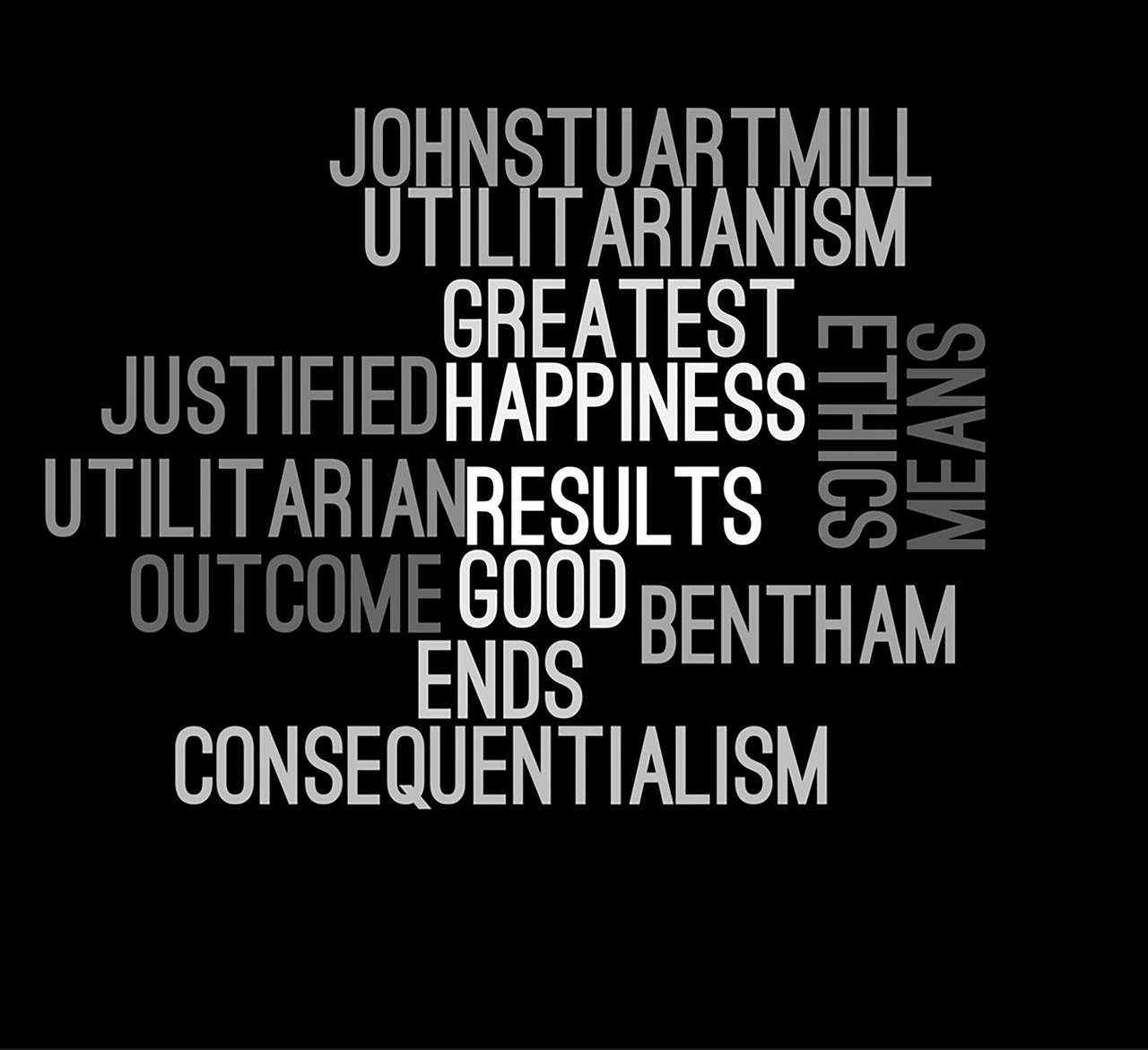
Feminist critiques of Kantian ethics offer a fascinating lens through which to examine the limitations and implications of Immanuel Kant's moral philosophy. At its core, these critiques argue that Kant's framework is often rigid and overly abstract, failing to account for the relational and contextual aspects of human life. While Kant emphasizes rationality and universality, feminist philosophers contend that this approach can overlook the complexities of gender dynamics and the lived experiences of women.
One of the central arguments made by feminist theorists is that Kant's notion of the autonomous moral agent is inherently male-centric. Kant's ideal of rationality and independence reflects a specific cultural understanding of what it means to be moral, often sidelining the values of care, empathy, and relationality that are traditionally associated with feminine ethics. This raises the question: can a moral philosophy that prioritizes individual autonomy genuinely address the ethical concerns that arise within interpersonal relationships?
Furthermore, critics point out that Kant’s categorical imperative, while aiming for universality, may inadvertently reinforce existing power structures. For instance, the emphasis on duty and obligation can sometimes ignore the nuances of moral dilemmas that involve emotional labor and caregiving roles, which are predominantly fulfilled by women. In this light, the application of Kantian ethics might seem disconnected from the realities faced by those who navigate complex relational responsibilities.
Feminist philosophers have also highlighted the importance of context in ethical decision-making. They argue that Kant's ethics can be too focused on abstract principles, often neglecting the significance of the specific circumstances surrounding moral actions. This critique suggests that ethical theories should be adaptable and responsive to the relational and situational factors that influence moral judgments.
To further illustrate these critiques, consider the following table that contrasts Kantian ethics with feminist ethical perspectives:
| Kantian Ethics | Feminist Ethics |
|---|---|
| Focus on individual autonomy and rationality | Emphasis on relationality and interconnectedness |
| Universal moral laws | Contextual and situational ethics |
| Abstract principles | Incorporation of emotions and care |
| Duty as a moral obligation | Recognition of the ethics of care |
In conclusion, while Kantian ethics has undeniably shaped moral philosophy, feminist critiques challenge us to reconsider its applicability and relevance in today’s world. By incorporating a more nuanced understanding of ethics that values relationships and context, we can foster a moral framework that is more inclusive and reflective of diverse human experiences.
- What is Kantian ethics? Kantian ethics is a moral philosophy developed by Immanuel Kant, emphasizing duty, moral laws, and the categorical imperative as guiding principles for ethical behavior.
- How do feminist critiques challenge Kantian ethics? Feminist critiques argue that Kantian ethics is overly focused on individual autonomy and rationality, neglecting the relational and contextual aspects of morality that are crucial for understanding ethical behavior.
- What are the key differences between Kantian and feminist ethics? Kantian ethics prioritizes universal moral laws and abstract principles, while feminist ethics emphasizes relationality, context, and the importance of care in ethical decision-making.
- Can Kantian ethics be reconciled with feminist perspectives? Some scholars argue that it is possible to integrate elements of both frameworks, creating a more comprehensive moral philosophy that values both autonomy and relational ethics.
Frequently Asked Questions
- What is Kantian ethics?
Kantian ethics is a moral philosophy developed by Immanuel Kant that emphasizes duty and the categorical imperative. It focuses on the idea that actions should be guided by rational principles rather than the consequences they produce.
- What is the categorical imperative?
The categorical imperative is a central concept in Kant's ethical theory. It is a universal moral law that dictates that one should act only according to maxims that can be willed as universal laws, meaning they should apply to everyone in similar situations.
- How does the universal law formulation work?
The universal law formulation of the categorical imperative requires individuals to consider whether the principle behind their actions could be adopted as a universal law. If it can be universally applied without contradiction, then the action is deemed morally acceptable.
- What are the practical implications of Kantian ethics?
Kantian ethics encourages individuals to evaluate their actions based on moral duties rather than personal gain. This fosters a commitment to ethical principles in everyday life, promoting integrity and accountability.
- What critiques exist against Kantian ethics?
Critiques of Kantian ethics often focus on its perceived rigidity and inability to address complex moral situations effectively. Critics argue that it can be inflexible in the face of real-world dilemmas where outcomes matter.
- How does Kantian ethics differ from utilitarianism?
Kantian ethics is deontological, focusing on the morality of actions themselves, while utilitarianism is consequentialist, emphasizing the outcomes of actions. This fundamental difference leads to varied approaches in ethical decision-making.
- What is moral autonomy in Kantian ethics?
Moral autonomy is the idea that individuals have the capacity to legislate moral laws for themselves through reason. Kantian ethics values this autonomy, asserting that true ethical behavior stems from one's ability to act according to rational moral principles.
- Why is reason important in Kantian ethics?
Kant argues that reason is the foundation of morality. It allows individuals to discern right from wrong and provides the framework for ethical decision-making, ensuring that actions are guided by rational thought rather than emotions or external influences.
- What are feminist critiques of Kantian ethics?
Feminist critiques highlight the limitations of Kantian ethics, particularly its rigidity and lack of consideration for relational aspects of morality. These critiques argue for a more inclusive approach that acknowledges the complexities of human relationships in ethical considerations.

